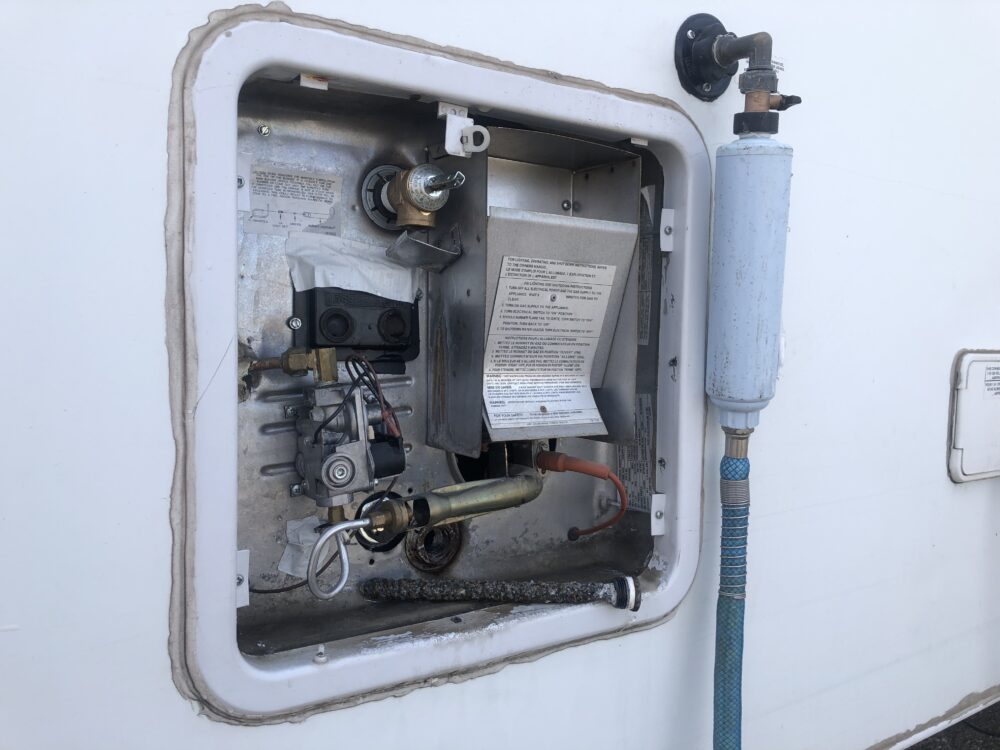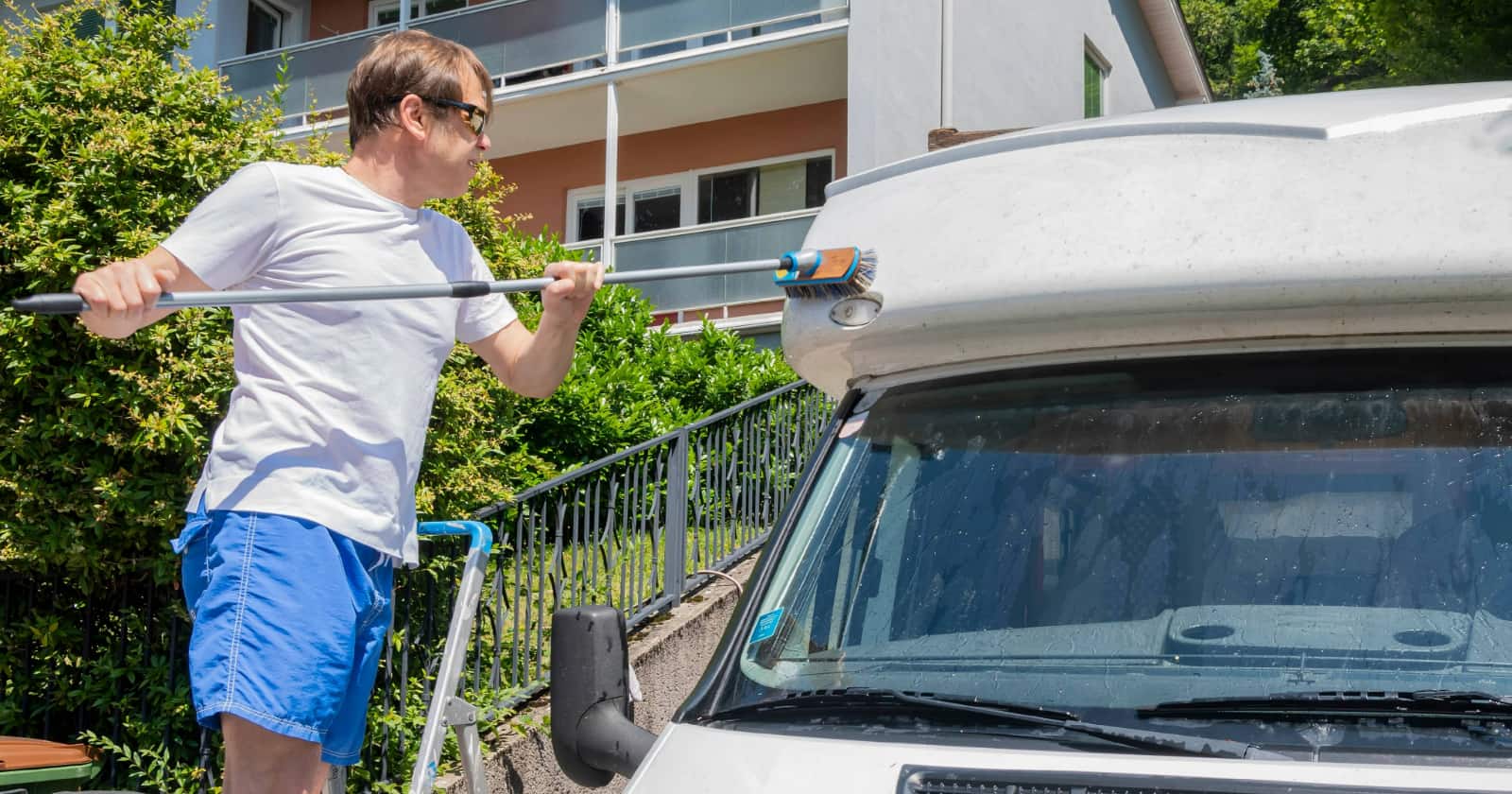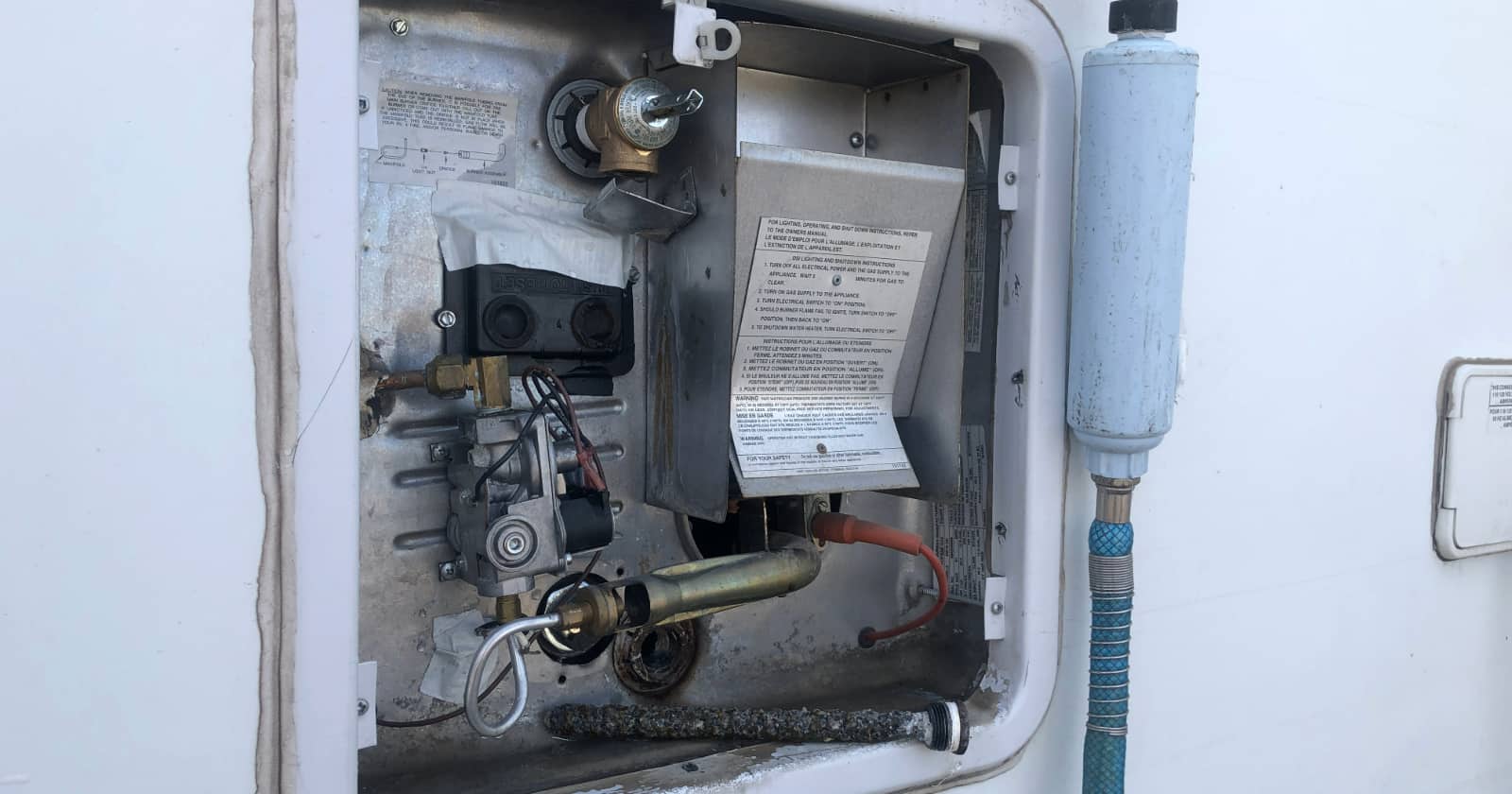
RV Anode Rod Replacement: A Step-by-Step Guide
As much as we love our RVs, let’s admit that there’s a lot to keep track of! These vehicles require constant maintenance, repairs, and updates. With the list of daily, weekly, monthly, and yearly tasks, it can be easy to forget about something as small as an RV anode rod.
However, these elements are crucial to the integrity of your RV plumbing system. Anode rods are designed to break down over time, so you need to replace them on a regular basis. The specific timeline varies from one RV to the next, but you should generally check or replace these rods at least twice a year.
Anode rods are often out of sight and out of mind. However, it’s important to keep an eye on them so you can keep your water heater and plumbing system in good shape. Below, we’ll cover the basics about RV anode rods, their function, how to replace them, and some general RV maintenance tips. Although it might sound like a lot, this task isn’t as scary as it sounds!
What is an anode rod?
Before we get any further, let’s talk about what an RV anode rod even is! If you don’t deal with water heaters very often, there’s a good chance that you’ve never heard of these.
An anode rod is a removable metal rod that sits inside a water heater. It is usually made of magnesium or a combination of zinc and aluminum. These materials are negatively charged, so they attract debris in the water and release electrons into the water as they break down.
Anode rods are sacrificial pieces within the water heater. They are designed to attract sediment and corrosive substances before they can affect the rest of the system. They almost act as a protective filter! As a result, these rods naturally break down over time.
In order to fit into the water heater, they have to be fairly small and thin. As they decay, they become pitted and corroded. Large portions of them might even dissolve. Therefore, it’s important to regularly check and replace them before they’re too far gone.
How to check/replace anode rods
Although many people are unfamiliar with anode rod maintenance, the actual process is fairly simple. You just need to take a few precautions in order to keep yourself safe.
Begin by turning off the water heater. Disconnect it from all electricity, propane power, and water sources. In many cases, you may also need to give it time to cool down. Working with a hot or active water heater is a recipe for disaster!
After waiting for an hour or so, drain all the liquid out of the water heater. This will relieve the interior pressure and reduce the risk of leaks or drips. Once all of that is done, it’s time to look for the RV anode rod.
Removing the anode rod
Start by opening the water heater door. The anode rod may be labeled, but you can’t always count on that. If you don’t know where to begin, look for a hexagonal bolt. As you unscrew this bolt, you should be able to access the anode rod.
You can usually remove the rod by yourself, but sometimes you may run into complications. For instance, you may need to call a professional if this piece has accumulated too much buildup. Don’t force anything if the rod is stuck. Instead, bring your RV to a mechanic and explain the situation to them.
If you can remove the rod by yourself, pull it out and inspect it. Be sure to wear gloves to protect your skin from the metal and corrosive materials. Most rods will be somewhat degraded, so don’t automatically assume you need to replace them if you see a bit of damage. As a rule of thumb, you only need to replace the anode rod once 75% of the material has dissolved or corroded.
Replace the anode rod once your inspection is complete. Now, you just need to flush the water heater so you can start with a clean slate. You may want to clean it with a mixture of bleach and water to remove unpleasant odors. At this point, you can power up the heater once again and get back to your normal life!
Maintenance tips
Now that you know the basic care regiment for anode rods, let’s cover a few general tips.
First off, anode rods will decay at different rates. It’s a good idea to check them at least twice a year, especially before you winterize your RV.
However, sometimes these rods can last for as long as two years or as short as a few months. It all depends on how often you use the water heater and what type of water quality you’re working with. If you travel through areas where the water has lots of dissolved minerals and debris, the anode rod will break down much faster.
One way to extend the lifespan of an anode rod is to invest in an RV water softener. If you install one of these in your RV, it will improve your water quality and remove corrosive elements before they enter the water heater. Your anode rods will still decay eventually, but water softeners can delay the process for a long time!
Finally, you might want to switch to aluminum and zinc alloy rods next time you need a replacement. Magnesium rods work well, but they tend to smell bad once they reach a certain point of decay. If your RV starts to smell like rotten eggs, an old anode rod is usually the culprit.
Why do I need to replace my RV anode rod?
After all this, you may still wonder if replacing the anode rod is even necessary. If they’re just going to break down again, what’s the point? In reality, there are several good reasons to swap out your anode rods on a regular basis.
For starters, these rods protect your water heater. They are like a sponge for harmful, corrosive substances. A fully functional anode rod will attract debris and other particles that could damage the tank.
If you let them wear out and fail to replace them, your water heater will suffer. It could even rust and crack, costing you hundreds or even thousands of dollars! Water heaters are heated and pressurized, so a leak could be catastrophic. It’s dangerous to let them fall into disrepair. If you want to enjoy the benefits of a functional water heater, make sure you inspect these systems like clockwork.
Additionally, old anode rods can create foul odors. The most obvious sign that you need a replacement is a rotten egg smell in your RV. This is actually an accumulation of hydrogen sulfide gas, which occurs when magnesium anode rods decay.
Nobody wants to live in a smelly RV. Remember to check your water heater first if you notice persistent odors around your living space. When an anode rod is corroded enough to stink, you know it’s time for a replacement. Once again, you can also solve this problem by switching to aluminum/zinc alloys.
Anode rods are the unsung heroes of your RV plumbing, so don’t overlook them!
Track your RV maintenance
Make sure you keep track of all your RV maintenance and repairs with an online tool such as RV LIFE Maintenance. Not only can you keep all of your documents in one place, but you’ll also receive timely reminders when maintenance is due to help you avoid costly repairs and potentially serious accidents.
Related articles:




Don’t forget that some areas the anode rod doesn’t always help or work. I regularly serviced mine, it didn’t help. The tank corroded though then leaked. A replacement tank costs close to replacement water heater or more than a tank less water heater. I’ve known some people that replaced with compact residential water heaters as full-timing in their RV.
The hot water tank should be flushed before replacing the anode rod.